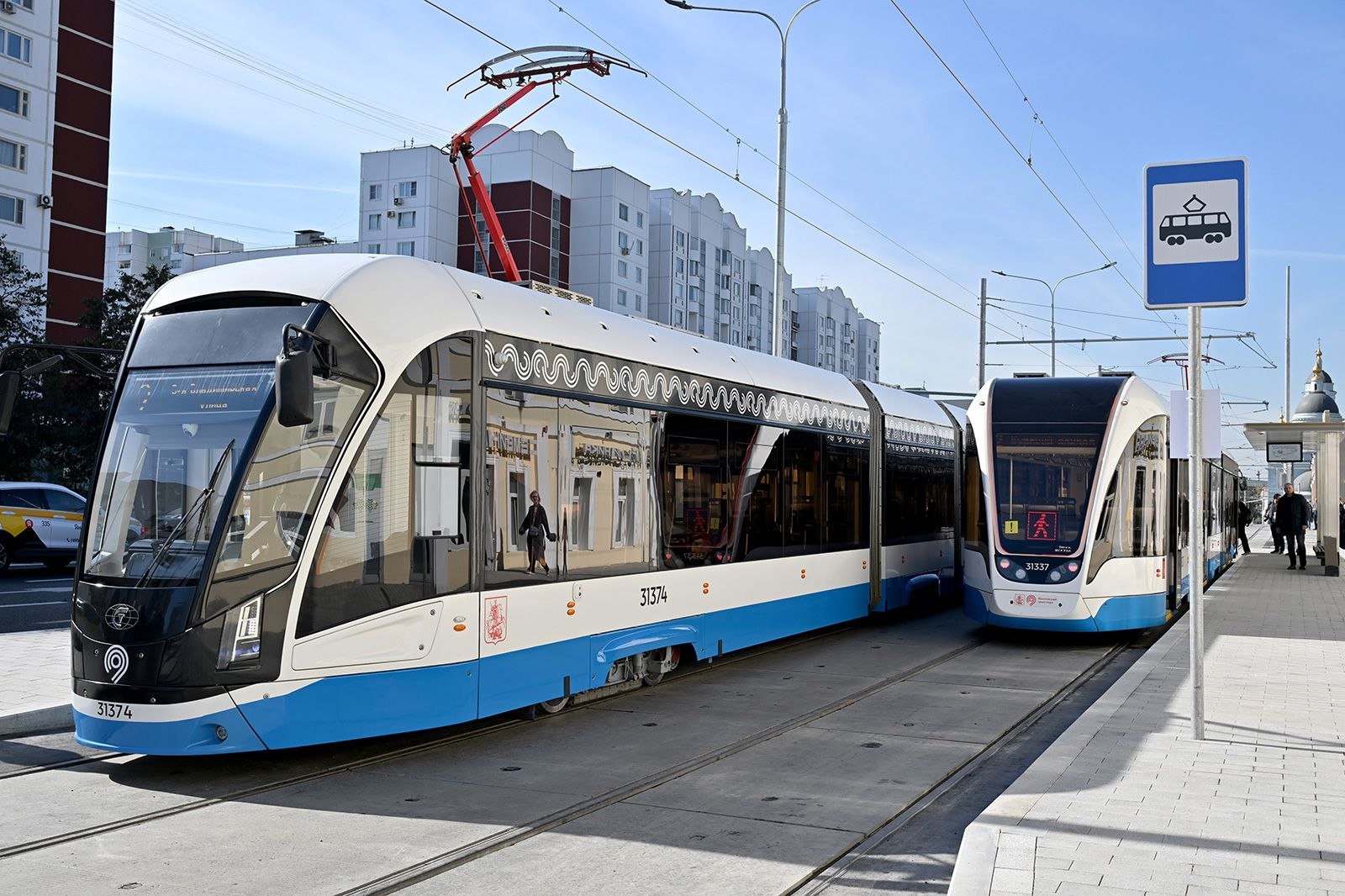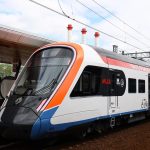
Moscow rolling stock modernisation plan for 2030 has been approved by the City Hall, Deputy Mayor for Transport and Industry, Maksim Liksutov, announced, which includes the procurement of new metro trains and trams to modernise and to meet public transport demand.
The strategy includes the acquisition of 2,000 new metro cars, leading to a projected increase in modern rolling stock to over 90% by 2030. The complete modernisation of Moscow Central Diameters MCD-3 and MCD- 4 is scheduled for completion by the end of 2025. Moreover, approximately 3,900 electric buses will be added to the city’s fleet by the end of 2030.
Since 2010, over 4,700 new metro cars have been introduced, boosting the share of modern rolling stock from 13% to 76%. An average of 300 new cars are added annually. The procurement of 560 Moskva-2024 cars is currently underway for delivery in 2024-2025, primarily destined for metro Line 2. The city plans to acquire an additional 2,000 cars by 2030, aiming for a fleet modernization exceeding 90%.
All new cars are domestically manufactured and Moscow accounts for approximately 90% of all Russian metro car orders, fostering significant growth within the domestic manufacturing sector. This substantial investment sustains over 360 companies across Russia, employing more than 30,000 people. The development of the next-generation Moskva-2026 train series is currently underway, incorporating feedback from passengers and train operators.
Moscow rolling stock for the MCD is among the youngest in Europe. The first two diameters have been fully modernised, with completion of MCD-3 and MCD-4 expected by the end of 2025. The current fleet includes modern EP2D series trains, double-decker Aeroexpress trains, and 75 Russian Ivolga trains of four generations, all specifically designed for the MCD network.
The Ivolga is manufactured by Transmashholding which utilised 97% domestically sourced components. Moscow’s investment represents approximately 75% of all orders within the Russian railway manufacturing sector.
Key features of the Ivolga include significantly 15% wider entry doors compared to standard suburban trains, enhancing passenger flow. The trains are equipped with advanced climate control and air purification systems, accessible USB charging ports and comprehensive safety features, including real-time technical monitoring. Accessibility features include dedicated spaces for families with children and passengers with disabilities. The air suspension technology ensures a smooth, quiet ride, and the open-plan design and ergonomic handrails contribute to a comfortable passenger experience.
The latest Ivolga 4.0 model comprises a third door per car, excluding end cars, for even faster passenger flow, with each 11-car train having a capacity exceeding 2,500 passengers. The reduction in passenger boarding/un-boarding time is up to 30%. Currently, Ivolga of various generations are in service across Moscow’s four MCD lines. 15 Ivolga 4.0 trains are currently operating on MCD-3 and MCD-4. Ten more fourth-generation units are scheduled for delivery by the end of 2024, further enhancing service capacity and frequency across the network.
The city plans to acquire approximately 100 modern, low-floor trams in the coming years to complete the renewal of its tramway fleet. Currently, the Moscow Metro system operates around 550 trams, including over 500 modern, low-floor trams of Russian manufacture acquired in recent years. This includes 464 three-section Vityaz-Moscow next-generation trams, known for their durability, speed, quiet operation, and passenger comfort.
The Vityaz-Moscow trams boast a passenger capacity 1.5 to 2 times greater than previous models, accommodating up to 260 passengers, including up to 70 seated. The fully low-floor design ensures accessibility for passengers with reduced mobility, with dedicated spaces for wheelchairs and bicycles. The trams have a design speed of 75 kilometers per hour and feature six doors (two single-leaf and four double-leaf) for 30% faster passenger boarding and alighting.
Standard tram features include advanced control systems, GLONASS/GPS location tracking, video surveillance, mobile device charging ports, Wi-Fi, multimedia screens, and climate control in both the passenger cabin and driver’s compartment. The unique bogie design ensures a smooth ride, virtually eliminating wheel noise on turns. The service life of Vityaz-Moscow trams, under lifecycle contracts, is 30 years, almost double that of traditional models (16 years).
Share on:







